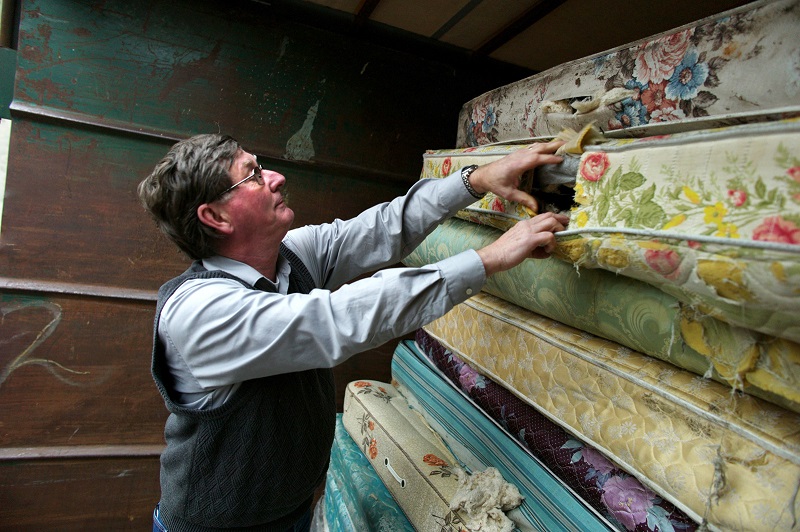
A letter from Terry McDonald:
In a time when we can all use some good news, I want to tell you about two remarkably positive things happening for the greater good in the state of Oregon.
These developments will have great impacts on our ability at St. Vincent de Paul Society of Lane County (SVdP) — and through an additional nonprofit enterprise — to create jobs, reduce waste, build revenue to support social services, and increase access to affordable housing.
First, if you’re not tuned into the workings of our state government, a quick recap: Oregon’s 2022 legislative session concluded with a flurry on March 4. Our lawmakers voted on 60 remaining bills in the last two days of the session, in which they added nearly $2.7 billion in new spending to the budget they passed last year. Thanks to growing tax revenues, lawmakers were able to dedicate hundreds of millions of dollars to oft-neglected but now pressing needs including homelessness, housing, employment, and more.
Two particular bills — Senate Bill 1576, establishing a statewide mattress-recycling/stewardship program, and House Bill 4064, enabling greater use of prefabricated housing in the state — are the pieces of good news I want to tell you about, along with funding to establish a new nonprofit factory-built housing organization.
New state mattress-recycling mandate
Oregon’s mattress stewardship law, championed by Sen. James Manning of Eugene, will go into effect Jan. 1, 2023. It is one of the most significant recycling bills this state has passed in 40 years.
Oregon is a longtime national leader in recycling laws, having been the first or among the first states to legislate the recycling of bottles, electronics, paint, and more. Now with new laws, Oregon and Massachusetts join California, Connecticut and Rhode Island as the only states with manufacturer-funded stewardship bills to ensure the responsible recycling of mattresses — a process, and an industry, literally created by SVdP.
You might not realize that we already have a mattress-recycling operation right here in Eugene, where workers process about 250 mattresses and box-spring foundations every day. If you didn’t know that, you’ll be even more surprised to learn that we operate a specialized company, DR3 Recycling, that processes about 1,400 pieces daily at three facilities in California. In fact, we created the nation’s first commercially viable mattress-recycling operation when we established DR3 as an SVdP subsidiary in 2000.
In all, our four facilities already keep 45 tons of mattresses and box springs from reaching West Coast landfills every day. Depending on condition, pieces are either sanitized and offered for reuse by low-income families through our charitable programs; partially rebuilt to preserve as much of the original product as possible and then resold; or deconstructed so the reusable components (wood, metal, foam and fabric) can be sold on secondary markets as commodities.
Just as we keep all of that unwanted mass out of landfills — mattresses are among the bulkiest, least compactable, most problematic things dumped in states where there is no recycling mandate — our processing facilities currently provide quality employment for about 60 people. These include entry-level jobs for ex-offenders and others with traditional employment barriers.
These recycling and employment figures will grow considerably when we expand our Oregon operations to handle additional mattresses and box springs reclaimed from across the state under the new stewardship law. We project as many as 100,000 pieces to be available annually for our Lane County operation alone, likely creating another 25-30 jobs in the Eugene area.
Our mattress-recycling efforts form a microcosm of the “social entrepreneurship” we are widely known for at SVdP. We innovate ways to extract stable revenue from society’s waste streams, creating jobs while also funding affordable housing, emergency shelter, and other much-needed human services in the communities we serve.
We even advise other nonprofits how to create sustainable waste-based enterprises via our mentorship organization, Cascade Alliance. Through the 18 member nonprofits participating in Cascade Alliance, SVdP has helped develop recycling operations in four of the states that now have mattress-stewardship laws.
Needless to say, as the nation’s oldest and largest recycler of the kind, we are thrilled to be able to take mattress recycling to the next level here in Oregon.
Big boost for factory-built affordable housing
The second legislative development I want to tell you about relates to making affordable housing — manufactured housing, specifically — more accessible to Oregonians most in need.
Affordable housing, of course, is another topic dear to us at SVdP. We have developed more than 1,600 units in Lane, Linn, Marion, and Multnomah counties since 1988 in an ongoing effort to build inventory accessible to low-income renters and buyers. This includes both newly built and rehabilitated apartment complexes, smaller multi-family properties, manufactured-home parks, even single-family homes — just about every type of unit, with almost all of the rentals managed by our in-house property management department.
Provisions of the newly passed HB 4064 will greatly expand the locations where factory-built homes can be legally sited in the state, eliminating many barriers previously presented by local zoning and code requirements.
In the short term, this is intended to expedite siting of manufactured homes to replace thousands destroyed during Oregon’s calamitous 2020 wildfire season. This includes some 2,500 manufactured homes and RVs burned during Southern Oregon’s Almeda Fire alone, which ravaged the district represented by bill sponsor Rep. Pam Marsh of Ashland.
The bill will also enable wildfire survivors to use the state’s manufactured home-loan program to pay for new prefabricated structures, and allow a greater variety of these dwelling types to be erected within existing manufactured-home parks.
In the long term, this will also create greater efficiencies for SVdP and other developers as we seek to implement cost-effective and timely solutions to the state’s worsening housing affordability crisis.
But before any of these short- and long-term advantages can be realized, we need to galvanize the expedient creation of factory-built dwellings to meet a great demand that has already largely exceeded the capacity of existing manufacturers. In short, we need to do it ourselves.
I started to talk about this idea years ago with the Network for Oregon Affordable Housing (NOAH) and other partners in the Oregon Housing Alliance. This led to an evolving dialogue between nonprofit and business leaders and lawmakers, including a meeting I had with Rep. Marsh in the recent leadup to the 2022 legislative session. Ultimately, she was able to fast-track the allocation of $15 million — part of a $400 million affordable-housing package — to create a new nonprofit organization to build prefabricated homes for low-income buyers and renters, in particular those displaced by wildfire.
Much is yet to be determined, including the organizational structure of this new enterprise and the location of its manufacturing facility. But there is an established nonprofit 501(c)(3) corporation ready for its formation: the Society of St. Vincent de Paul of Lane County, an entity of our company that is identified in the state’s spending bill. So this will be an important and exciting new adventure for our organization.
Beyond addressing the most immediate needs of wildfire survivors who lost their homes, through this new manufacturing effort, the state can potentially capture the capacity to build an array of prefabricated dwelling types. This would be a profound long-term asset to develop for the benefit of the state’s low-income residents, and give the state great flexibility in responding to changing housing needs.
Legislative fiscal analysts estimate that this new housing-manufacturing endeavor could create 50-60 jobs within six months to a year. And when operating at full speed, it could potentially yield two finished dwelling structures daily. If some of those were multi-unit modular apartments destined for affordable-housing developments, the facility’s output could be between four and eight new units every day to help house the state’s very low-income residents.
This represents another remarkable opportunity for SVdP and our partners to lead the way in creating stability, jobs, economic diversity, and sustainable solutions for people who call Oregon home.
– Terry McDonald, Executive Director, St. Vincent de Paul Society of Lane County, Inc.
